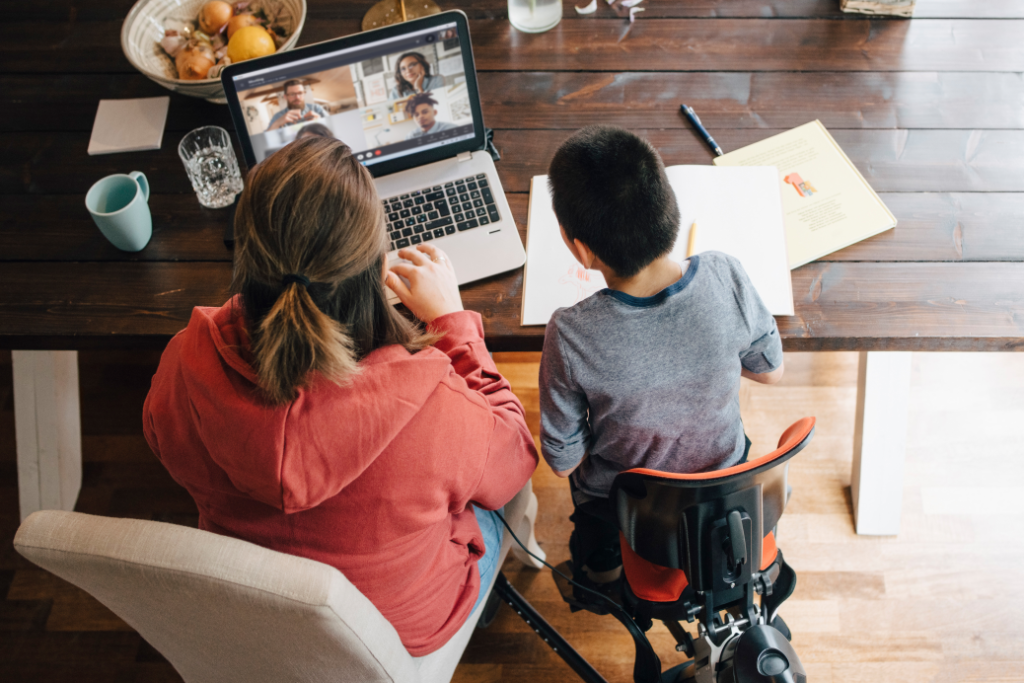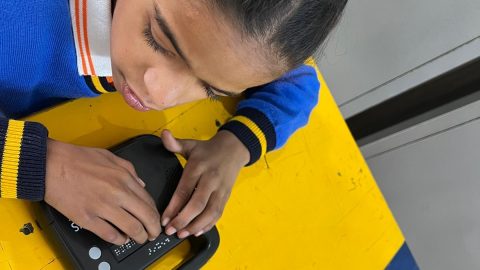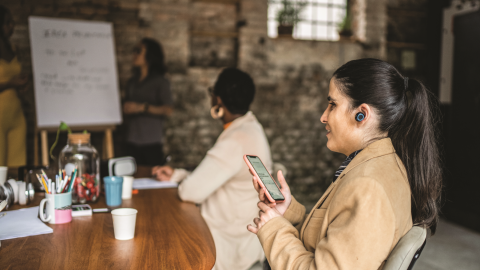How AI is being used to improve mental health
Mental health continues to be an area of great need in our society, according to the World Health Organization, approximately 1 in 4 people in the world will be affected by mental health disorders at some point in their lives. However, it can be difficult to pinpoint the exact number, as many people might not seek treatment or receive a diagnosis, with social and cultural stigmas continuing to play a part, despite the fact it can affect individuals of all ages, genders and backgrounds.
As we think of the role technology, especially in addressing the disbalance between available healthcare providers and increased demand of those services, AI and AI algorithms could play a role in reducing that gap. From diagnosis through behavioural data and automated assessments, to personalized care through customized recommendations of treatment, technology has the potential of scaling available mental health support.
However, to be truly inclusive, AI systems need to build on inclusive data and design with intersectional considerations in mind (such as culture, language, race, gender and more). Furthermore, user privacy and protection is absolutely paramount. Users must be aware at all times be of how their information is being used and by whom and have full control over it.
In our latest request for proposals for the AI for Accessibility grant program, project submissions gravitated around a few key themes, including: Cognitive Behavioral Therapy (CBT) as a modality for delivering mental health services, personalization of support in local languages through text analysis, AI-human partnerships for community-informed care as well as the exploration of wearables in detecting changes in mental health.
The opportunity for culturally inclusive mental health resources
An interdisciplinary team spearheaded by SafeLab, in partnership with the University of Pennsylvania, Columbia University and mental health service provider the Center for Black Well-being, is working on developing a web new platform, JoyNet. The platform will focus on culturally relevant resources related to grief and mental health challenges in support of Black youth, which will displayed in accessible and visually appealing ways. Furthermore, the goal is for JoyNet to be used and kept as an open-source code, allowing further expansion to other underrepresented and marginalized communities.

SafeLab has been studying grief, loss, and violence for years and they have realized there is a lack of strengths-based research highlights joy and resilience. Through a community-centered and co-creative design framework, JoyNet aims to center youth experiences of how joy is experienced online, and equally how joy can be even more accessible online.
JoyNet will directly identify which mental health recourses and what formats of presentation are most impactful for Black youth. Co-creation will sit at the core of the design process, with the team gathering further input on the relevancy of mental health resources, the appeal of graphic design and interaction design of the platform itself.
Furthermore, emotional wellbeing can be at risk when online spaces are overwhelmed with negativity and loss. The team will be using AI tools and ML (machine learning) to merge social media data and mental health data to identify what mental health resources are and are not effective for Black youth communities. These resources can vary from text, image, audio or video and convert non-text data into text through optical character recognition and automatic speech recognition.
Ensuring wider access to mental health through support in local languages
IWill, a digital mental health startup from India, is engaging with local communities, patients, healthcare partner, nonprofits and governments to enable access to quality and relevant context specific mental healthcare. The demand for mental healthcare is increasing, across both rural and urban populations in India – during the pandemic and before IWIll has supported 600,000+ online counselling sessions.

To bridge the 83 percent treatment gap for the 300 million plus people in India who need some form of mental health intervention and encouraged by recent trends of usage of smartphone technology and increasing tech literacy, IWill is building an AI-based CBT model that will work as the underpinning technology for a Hindi-based chatbot. This will allow for a completely technology driven mental health care companion for people with milder concerns and also ensure accessible use for those with disabilities.
The complete Hindi-based CBT model will focus on recovery and helping people with mild instances of depression and anxiety. It could serve a large swath of the population given the over 80 million Hindi speakers and the special considerations for underserved communities. From a technology perspective, the team will be using the Azure Machine Learning suite to create the CBT and train it to be able to have empathic open conversations in the scope of therapy. At the end of the project, IWill will be publishing an impact study and share their outcomes for other organizations to leverage in their own areas.
Read more articles on mental health:
Human-AI Collaboration to Encourage Empathic Conversations – Microsoft Accessibility Blog
Mental health support made accessible using AI-powered chat – Microsoft Accessibility Blog








